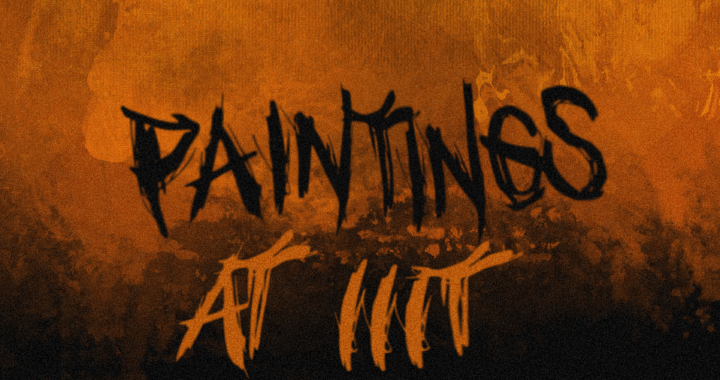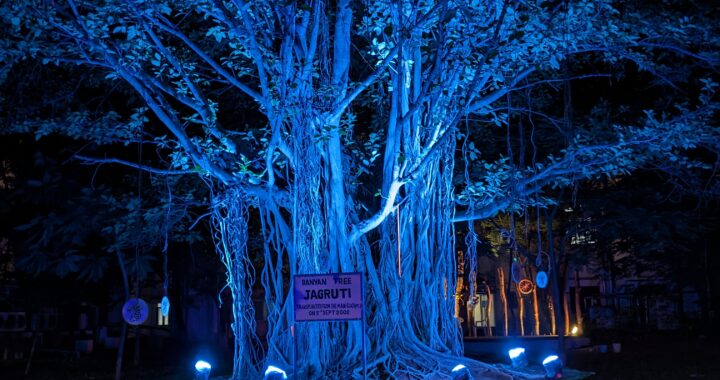A Meeting With The Apex: Issues with the Body on Top

Introduction
The Apex is the student body that ensures a smooth arrival for freshers into college and has several duties including administrative work, designing the induction schedule and curbing unhealthy interactions between juniors and seniors.
In a heated HV discussion in April, some concerned students expressed dissatisfaction with the competence of the Apex body. The Apex then decided to have a meeting with the students who were not happy with the workings of the Apex.
This article summarises the discussion during the meeting. The dissatisfied students have been referred to as students or concerned students.
The Selection Process
The current selection process of Apex is:
- Round 1: An interview with the present Apex members (after applicants send a write-up)
- Round 2: An interview with the faculty
Round 2 was introduced this year by the SLC and therefore reduces the full autonomy Apex once had in the selection process.
The meeting started off with the students present saying that they were not satisfied with the Apex selections. One person said that he could have easily predicted before the interviews itself who would get in and who would not, based on the contacts they had with seniors.
The Apex denied this, saying that they had made sure that the interviews were taken in a way that the applicant would be interviewed by the Apex member who least knew her/him.
The students then asked on what basis the selection was made. The Apex said they could not tell the basis for selection—as it was their duty to maintain the privacy of the interviewee since some of the questions they had asked were person-specific, but it was sufficient to know that they had chosen members most suitable to do Apex duties. A document containing all the questions and replies of every applicant’s interview is made that is open to the SLC for examination.
The Definition of Ragging
The discussion went on to what the definition of ragging was. Both the students and the Apex agreed on zero tolerance—as follows:
Apex said that any interaction would be put to an end the moment the junior said he or she was uncomfortable, or the mentor/apex member feels something has gone too far (no clear line). Until such time, upto a limit, interactions are allowed. This is so that the Apex involvement does not go overboard, or prevent normal talking between juniors and seniors.
The students wanted any interaction to be put to a stop the moment it was asymmetric. This would include being asked to call seniors as sir/ ma’am, being asked for intros. etc.
The Apex had two issues with this:
-
- If we stop interactions at that level, seniors and juniors would end up not interacting at all
- It is impossible to get freshers to participate in events without a little coercion.
To the first, the students gave the Apex examples of colleges where such incidents would be immediately classified as ragging and strict action would be taken, but senior-junior interaction was still very prevalent. ‘Just because strict sexual harassment laws exist, doesn’t mean that boys and girls don’t talk anymore.’
To the second, the students said that the lack of participation in events was the result of the induction schedule itself—the way it was organised made several juniors resent the seniors, and it was therefore always necessary for juniors to be forced into participation for any event after—if they did not resent seniors, then they would wilfully participate in events.
The Induction Schedule
The current induction schedule consists of talent hunt, karaoke night, icebreakers and a few other events. The students felt that these events could be better organised so that the freshers didn’t (at times) feel like they were just there for seniors to have their fun. The icebreakers, to a great extent feels like it is only present for seniors’ entertainment.
The Apex said the induction schedule would overall help you get to know your seniors better, but the students felt otherwise. It is a common practice during interactions to not tell juniors your names and watch juniors go through the trouble to run around and find out their seniors names, and those who didn’t would end up not being benefited by the schedule in terms of ‘getting to know their seniors’ at all.
The students demanded complete removal of the icebreakers and a revamping of the entire schedule to make all interactions symmetric.
The Apex agreed that the current system had its flaws and was not perfect. And the induction schedule will undergo major changes next year. To do this, they will need inputs from the community on how to make college more welcoming for the juniors and we urge those who have any ideas on changing current events, and adding or removing events to mail their views to the Apex.
Telling the Faculty Everything
From the discussions, one could infer that any incident is reported to the faculty,
-
- After waiting for enough time for the victim to ‘calm down’ so that he/she does not act out of anger.
- Only if the victim wants the incident to be reported.
One Apex member said that when a senior interacts badly with a junior when he/she is in an irrational state of mind, we consider that wrong, so when a junior complains against a senior in an emotional state of mind, that might be wrong as well. Hence the wait for a junior to calm down and then let him/her decide if he/she wants to report the incident.
And the Apex also maintained that they would not report an incident to the faculty if the victim did not want to, the first years are after all adults too, and it is wrong to take decisions on behalf of another adult. In fact in a case of severe ragging where a junior was visiting a senior’s room and getting ragged, the Apex kept telling him that what was happening to him was not okay, and they would in fact join him to go and complain to the faculty. The junior however did not want to complain, so the Apex had to drop the incident at that.
To the first, the students said that the victims have the right to report any incident to the faculty at any point, especially when they felt distressed. The Apex agreed.
The students said the second point is flawed because a senior ragging a junior knows that he/she is safe as long as the junior does not complain. Which means the way to remain safe is to continuously threaten the junior that terrible things will happen to him/her if he/she complains, and scare them as much as possible.
The Apex agreed to this and said that from now on, any ragging incident that crosses a limit, which will be decided, will be reported as is to the faculty irrespective of whether the victim wants to report said incident.
To the point about complaining whenever they are distressed, one senior (neither Apex nor dissatisfied student) said that when juniors come in, they are all jittery and nervous, and classify any small thing as ragging and will want to report everything.
The Apex said that several incidents have been reported to the faculty, and action has also been taken against the seniors involved.
The Black Boxed System
The Apex does not reveal any of the complaints that they have received or the actions that have been taken on those complaints. This is to protect the identities of both the victim and the perpetrator, the victim so that he does not face any harassment from anyone for complaining and the perpetrator, so that s/he is given enough time to change his/her ways without being judged. (This is true of of most disciplinary cases in campus.)
While the above is true, there are two issues with this:
-
- A lack of trust towards Apex
- A lack of deterrent for the seniors
When students see ragging incidents around them, and they see nothing being done about it (because they don’t know what Apex is doing about it), it is hard to trust the body that is supposed to make life smooth. To top it, the induction schedule events organised by the Apex do not exactly paint a picture of a body who cares for the junior’s fears and insecurities. This, coupled with a few radically anti-ragging people (sometimes called the Black Faction) fueled the distrust in Apex by the juniors last year.
To bring back the trust in Apex, there is a clear need for transparency in the system. We need assurance that the Apex is doing its duty without compromising on the privacy of individuals—and a mechanism for this needs to be brought up in the meetings that Apex will have to hold to make all the reformations.
Implementation of Changes
It is easy to say that ‘all asymmetric interactions’ will be stopped, but how do we go about doing that?
The following suggestions came up in the meeting (both the students and Apex members agreed upon the first three):
-
- Have a meeting with seniors (just like Apex has meetings with the juniors) on how to behave with the juniors. Explain what kinds of interactions are strictly not allowed.
- Release a list of punishments for different categories of actions. Send emails, put it up on life, put up posters, make it public.
- Follow said punishments strictly—if anything seems to be different, take it up on a case to case basis.
- Release a list of incidents committed, and the punishment that was meted for it afterwards, just like what was done for the breach of the college academic rules. The problem with this, a person(neither Apex not dissatisfied student) claimed was that in a college as small as this, one could immediately realise who did what. And it would spread details faster about the incident, compromising privacy of the victim and offender.
Author’s Opinion
A common phrase heard by the Apex whenever they are asked to explain or justify any actions is that they are not accountable to the student body. One wonders how a body created solely for the welfare of the new students is not accountable to the students itself. This is a fundamental issue with the working of the body.
Different students have different tolerance levels, and respond differently to situations. The current Apex might be catering to students who in general can ‘handle it’ or don’t mind being made fun of a little. However, such a student body is successful when it caters to the needs of the most sensitive and vulnerable students, and should therefore aim at doing that.
The ideas that came up during the meeting are not complete and definitely not final. It is hoped that the Apex, interested students and concerned faculty discuss these issues once again, and come up with concrete and sensible solutions to make college feel safe even to the most anxious of freshers entering the gates.
Note:
Most of this article was written two months ago, right after the meeting. On contacting an Apex member recently, I came to know that these issues have been discussed with the faculty and the suggestions will be taken into consideration while designing the induction schedule.
I also note that response from Apex is extremely slow on email, and some internal protocol on checking and replying to the mails needs to be put in place with immediate effect.

 Cleaning up the Mess?
Cleaning up the Mess?  The Mess-y Situation
The Mess-y Situation  Qu’ils mangent de la grenouille! (Let Them Eat Frogs!)
Qu’ils mangent de la grenouille! (Let Them Eat Frogs!)  Tale of Two Cheenties
Tale of Two Cheenties  Peace of mind.
Peace of mind.  Boats and Valorant
Boats and Valorant  A perspective on sports in IIIT
A perspective on sports in IIIT  Paintings of IIIT
Paintings of IIIT  The Tale of Jagruti
The Tale of Jagruti